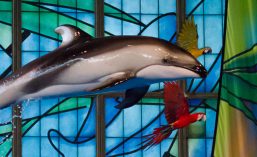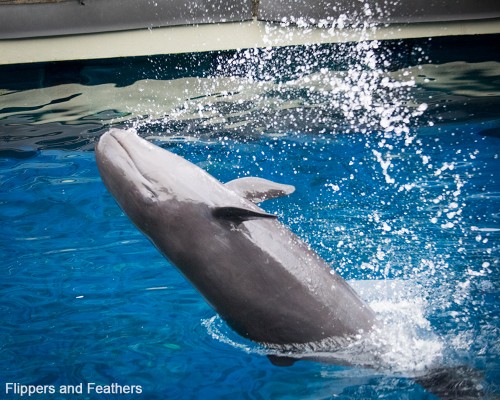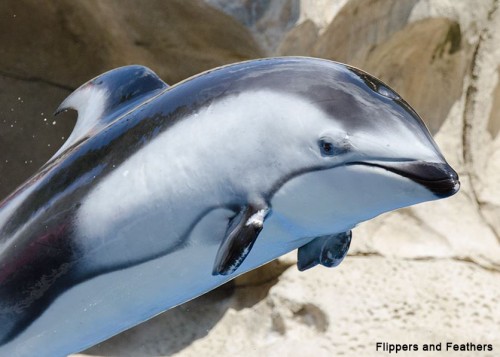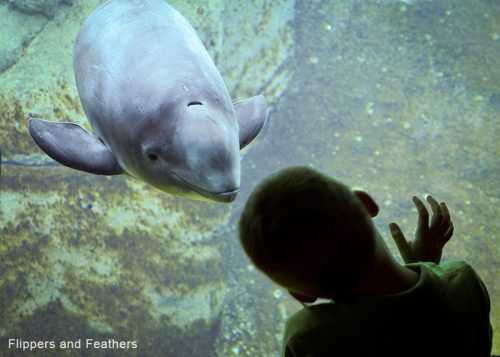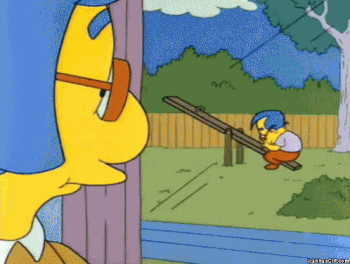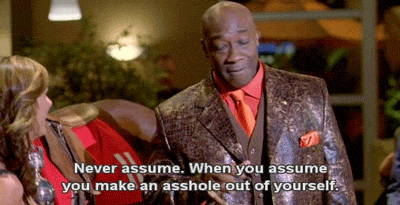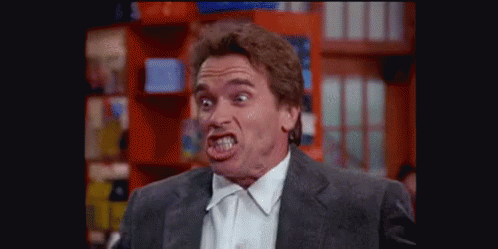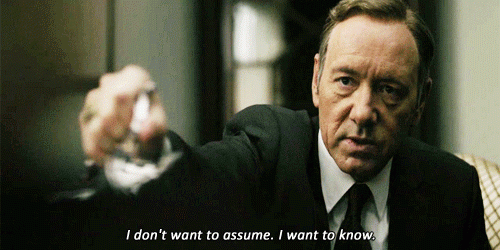Even before the sad news of 9-year old Daisy the Harbour Porpoise’s death, this couldn’t be stated enough: “Every animal matters.”
No, that isn’t the mantra of an animal rights group like PETA (who kill 97% of the animals taken into their “care”), but the oft-repeated sentiment of the Vancouver Aquarium and their supporters as the Park Board voted to ban all new cetaceans from entering the aquarium.
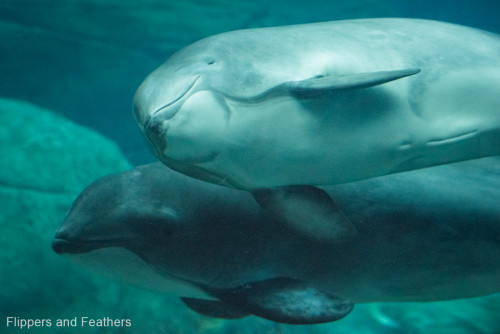
Daisy (bottom) and Jack
This decision means that animals like porpoises Daisy and Jack, and false killer whale Chester, all of whom were found washed up on beaches at about 1 month of age, will now have to be “euthanised” on the spot instead of being taken to the Vancouver Aquarium’s Marine Mammal Rescue Centre and given a chance at life. The aquarium must be able to provide a long-term home to animals deemed non-releasable by the Department of Fisheries and Oceans. As the only facility of its kind in Canada, that ability has been lost.
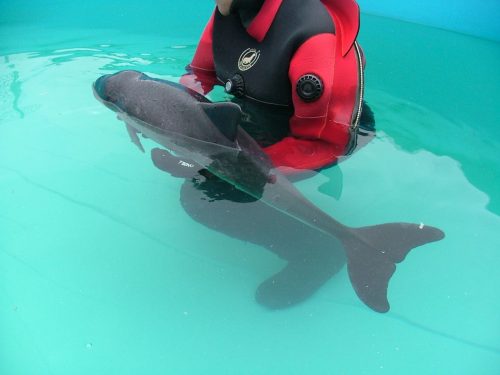
Baby Daisy. Credit: Vancouver Aquarium
Clearly, these animals do NOT matter to the Park Board, who have been asked countless times if the “experts” they claimed to consult included the DFO. Their silence could seen as an answer in itself. A so-called humane society was among the many who praised the ban while implying it doesn’t matter because (paraphrasing collective statements from them and others) “not that many cetaceans are treated at the MMRC anyway”. But the number is irrelevant: these animals matter. All of them.

This figure ignores attempted rescues and all other strandings. Only those who survive long enough to enter long-term treatment are “counted.”
Daisy was an ambassador to her species in every sense of the word. What her caregivers learned from her directly contributed to the successful re-release of Levi. And then there are those she inspired: she stole the hearts of myself and countless others, and we love with the often-overlooked porpoise family as a direct result of interacting with her. Some of us are now taking action to save the critically endangered vaquita as part of that newfound love. Even Daisy contributed to vaquita conservation efforts.
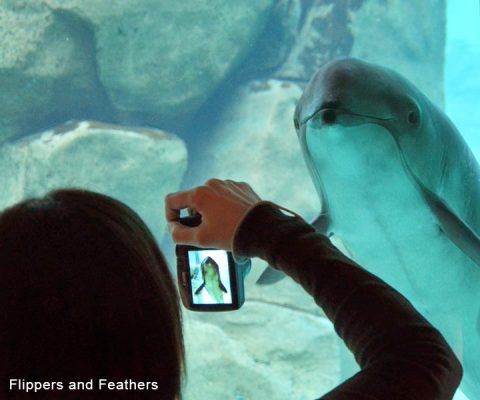
The day I fell in love with porpoises
Returning animals like Daisy to the wild is always the goal, but it isn’t always possible. For those who call facilities like the Vancouver Aquarium home, while their lives may be different to that of their wild counterparts, that does not make them any less meaningful. Their trainers and tankmates are their friends and family. They have toys, affection, better medical care than many humans receive, and they never go hungry. They even participate in research that can improve the lives of their increasingly imperiled wild counterparts, and increase the likelihood of successful rehabilitations.
The people at the Vancouver Aquarium are the true activists, knowing all the animals who have a chance at life deserve that life…and working to make it happen. Every one that needs to be shot on the beach because of this shortsighted law is one too many. Please, as the Vancouver Aquarium fights the ban in court, continue to let the Park Board know you oppose their decision.
And then, please help save the vaquita. For those Daisy touched, fighting to save the vaquita in her name is perhaps one of the best ways we can honour her memory. For without her we might not care in the first place.
Rest in peace, sweet Daisy. May your memory live on through those you inspired.
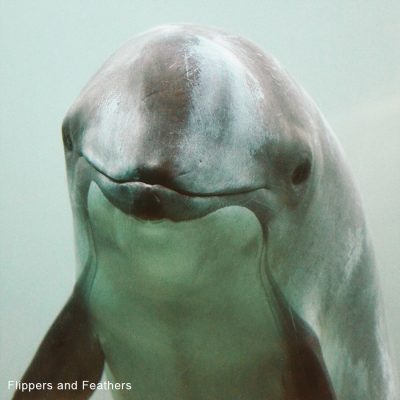
Further reading:
Porpoise Conservation Society
Euthanasia, Humane Killing, and the Vancouver Aquarium
